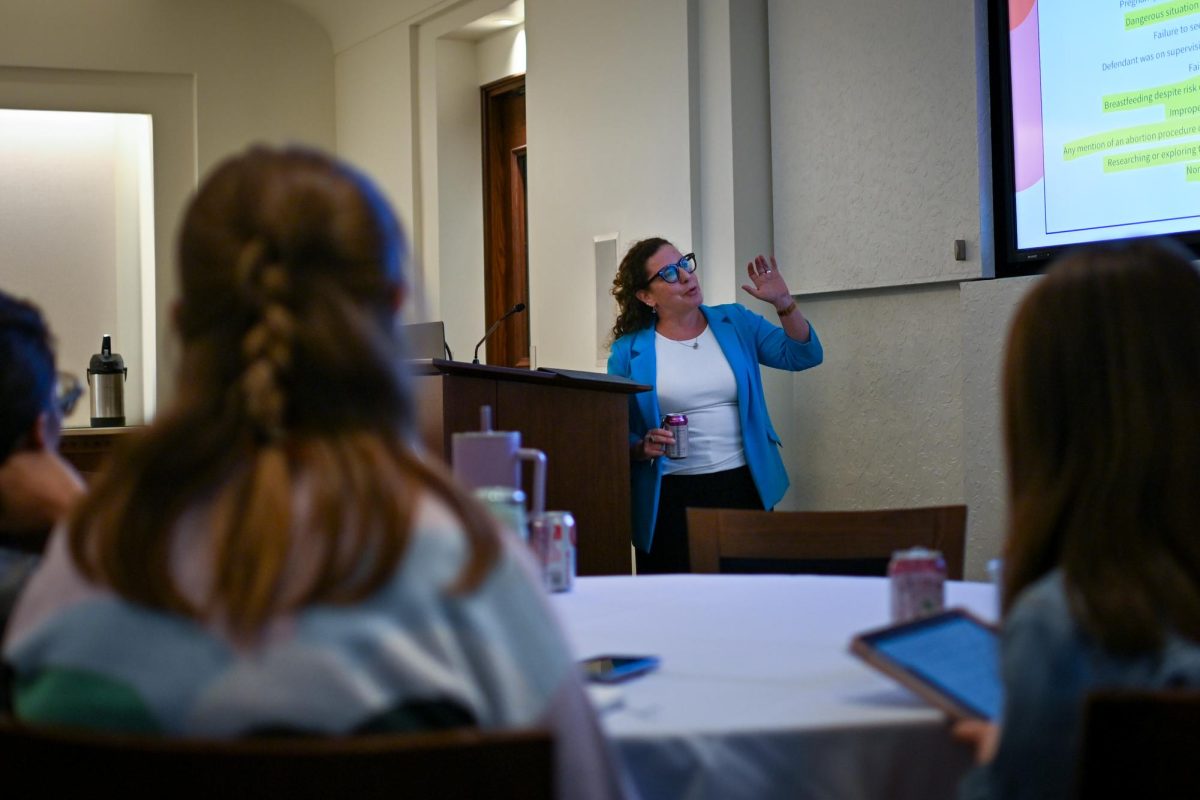A law professor from the University of Tennessee discussed pregnancy criminalization at the School of Law as part of her ongoing research on Monday.
Professor Wendy Bach spoke about “Pregnancy As a Crime: A Preliminary Report on the First Year after Dobbs,” which she published in September. The discussion took place at the Townes Hall building, as a part of the Fall 2024 Reproductive Justice Colloquium. Her report analyzed prosecutions that took place a year after the 2022 U.S. Supreme Court case Jackson Dobbs v. Women’s Health Organization. The case ruled the Constitution does not grant a right to abortion and returned abortion regulation rights to states, effectively overturning protections established by Roe v. Wade in 1973.
Bach and her team found that at least 210 pregnant people faced criminal charges for actions associated with pregnancy and birth in 12 states, including Texas, in the first year after the Dobbs decision. Six prosecutions occurred in Texas, while most took place in Alabama at 104, followed by Oklahoma with 68. The majority of pregnancy-related charges involved allegations of child abuse, neglect or endangerment, according to the study.
“One of the things that I emphasize in the report is that our report does not tell you what actually happened in any woman’s life,” Bach said. “What it tells you is what police and prosecutors say happened and what they think constitutes a crime.”
Most defendants were white, making up 143 out of 210 of those who were prosecuted, followed by Black Americans at 30 total defendants, according to the study. The majority of people prosecuted came from low-income backgrounds.
“The descriptions are really horrific,” Bach said. “Homeless women giving birth in a homeless camp. Folks getting hurt at home and outside of medical settings. (In some) really emergent circumstances, she’s often alone.”
Only one of the charges was an abortion-specific crime, according to the report.
“At one point in one of the cases, (the prosecutors) said, ‘She visited an abortion clinic, so she must have meant for this pregnancy to end, so that’s evidence of her criminal intent,’” Bach said.
Prosecutors often charged pregnant people with offenses without proving there was harm to the fetus or infant, according to the report.
“There are cases in this study where she gives birth in emergent circumstances,” Bach said. “She’s sitting on the toilet … the baby falls. She picks the baby up, puts it down somewhere. The baby is not alive and (the pregnant person can get prosecuted for) improper treatment of fetal remains.”
Law professor Jennifer Laurin said Dobbs changed the nation’s constitutional landscape, but some prosecution aspects remain the same.
“The people being charged, the conduct being criminalized and the charges being brought are essentially identical to the people being charged, the conduct being criminalized and the charges being brought when abortion was constitutionally protected,” Laurin said. “There are decent reasons to think that the numerical increase might actually be a product of visibility and effort rather than change (of) practices.”
Sydney Leverette, a master’s of law student, said the report’s findings made her worry about her reproductive rights.
“As someone who is capable of becoming pregnant, it’s terrifying,” Leverette said. “In this political climate, it doesn’t feel safe to even try and have biological children … (When it comes to) reproductive justice, we talk about the person having the right to decide if and when they have children. It feels like that has been taken away.”














